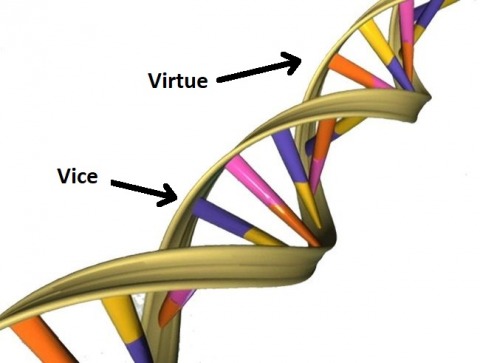
** Spoiler Alert **
I recently read Upgrade, a Michael Crichton-style technothriller by Blake Crouch, in which humanity almost comes to an end because someone decides to play God, trying to implement an involuntary, virally transmitted polygenetic hack in order to make the whole human race smarter. What could go wrong?
A lot. The first few supergeniuses try to kill each other.
The novel is a decent read, and to his credit, Crouch realizes that we don't have an intelligence problem, but a moral problem. Unfortunately, as the plot moves along, he reaches the wrong conclusion: We just need to play God better. For in his view, we do need a genetic hack -- not to upgrade intelligence, but to feel more compassion. What could go wrong?
A novel shouldn’t be treated as an ethics treatise, but novels often encapsulate widespread errors. So here, for we do need compassion, but compassion is a virtue. Crouch falls into the sentimentalist fallacy. He thinks it’s a feeling.
Virtuous people don’t just feel more of something. The good man feels the right things, for the right reasons, toward the right people, on the right occasions, to the right degree. Feeling so much sympathy that I am unable to punish the convicted mass murderer doesn’t make me compassionate; it makes me a ninny. We need judgment. So even though virtue is habitual, it can’t be programmed – and anything that can be programmed isn’t virtue.
Conceivably, a genetic hack might make people have some feelings more intensely. What it can't do is make them more virtuous. It may even make them less.